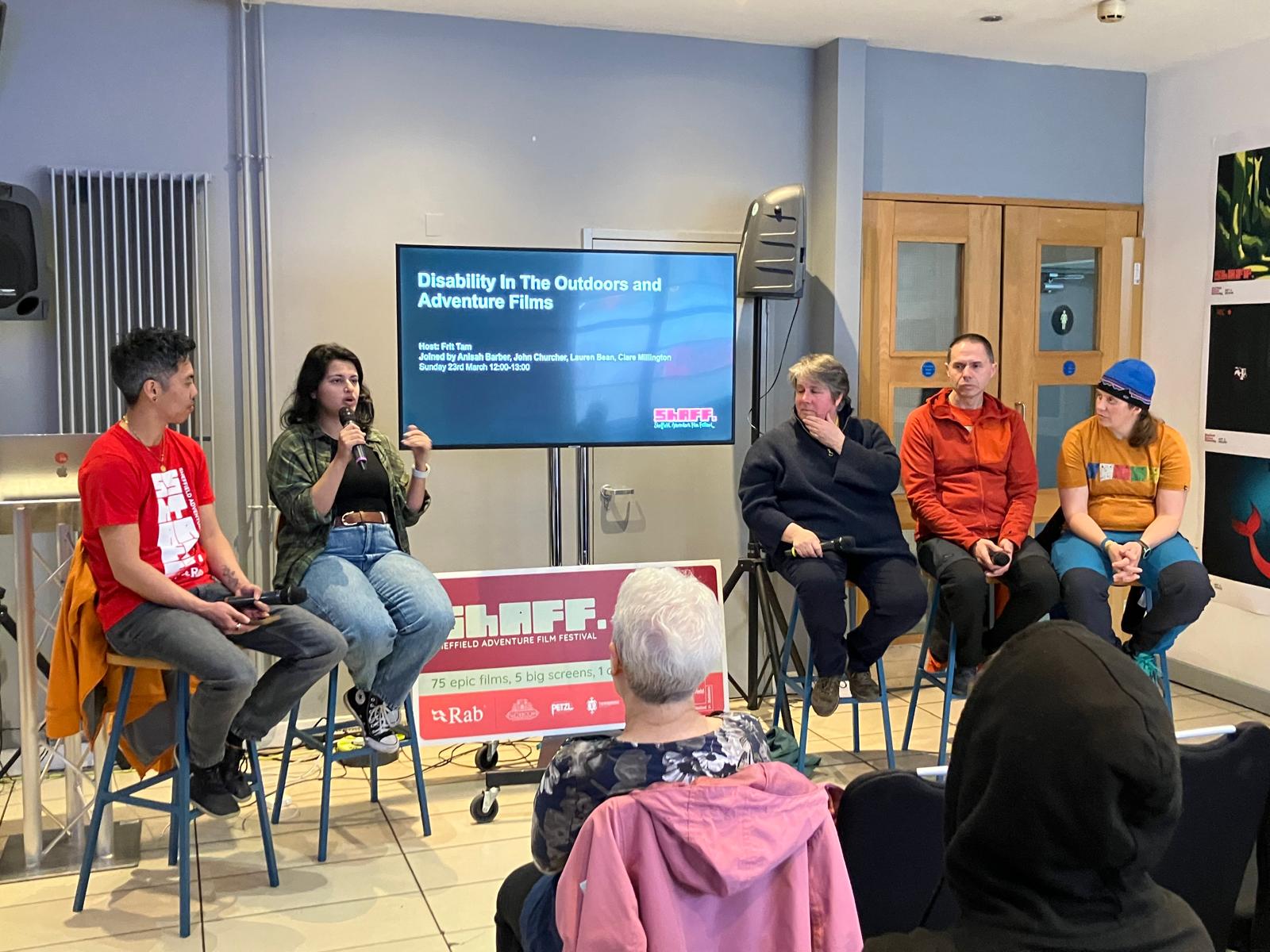Panellists spoke about going beyond basic needs and promoting “a good life” during a talk on disability in the outdoors, as part of this year’s Sheffield Adventure Film Festival (SHAFF).
The panel hosted Clare Millington, a mother of twins with learning disabilities, who highlighted the issue of “low expectations”, and included a conversation on how disabled people are represented within the adventure film genre.
John Churcher, another speaker, talked about his climbing experience and said: “Sometimes, people’s attitudes haven’t been the best, so we just try and educate them that blind people can do it.”
A range of viewpoints on the current state of accessibility for disabled people seeking to access the outdoors were shared, with topics like the right-to-roam campaign and the government’s proposal to limit disability support coming under discussion.
Anisah Barber, a disability rights campaigner and director of the Adaptive Riders Collective, spoke about her isolation from the outdoors community when she encountered frustration from “people who look at me and go ‘well, you look fine, so why are you struggling to do this’”.
She also drew attention to the additional cost of disability and said: “Specialised kit is even more expensive, brands are perhaps only providing it to well-known people…as much as people might say that the outdoors is free, it’s not.”
SHAFF 2025’s co-director and the panel’s chair, Frit Tam, later spoke with Sheffield Wire and reflected on the hundreds of film submissions sent in for consideration.
He said: “There’s not nearly enough films about disabled athletes. We’re still really, I think, in such early days of that, but also, somewhat frustratingly, it’s 2025 and we shouldn’t be in the early days of that.”
It was a point brought home by Mr Churcher’s sight guide, Lauren Bean, who challenged herself to provide audio descriptions of movies after having to read out “90 minutes’ worth of subtitles”.
She said: “I thought it must be lengthy, difficult and expensive because nobody’s doing it, and I was just completely taken aback by how easy it was, and I think it just really annoyed me.
“I don’t think it should be acceptable that films featuring a blind person are not audio described…because if you’re making a film about blind people, who are you trying to inspire? Because it’s not other blind people, if it’s not accessible to them. It’s just not right.”
Mr Tam said: “Films create an opportunity to spend time with somebody, or somebody’s story, for an extended period of time in which you can then learn more about someone’s journey.”
During the weekend-long event, a series of film strands were screened, including a new ‘Reconnection’ segment that intended to showcase community-centred movies.
Set in a deprived district of South Dallas in the US, Danny Schmidt and Lindsey Hagen’s 4DWN – one of the films shown as part of ‘Reconnection’ – focuses on the pastoral role that a skatepark-turned-urban-farm is playing in parts of the city where the state has, in effect, retreated.
The crisis of food insecurity and a lack of social infrastructure intertwine, from the viewpoint of a young African-American boy who takes hold of the fragile joy to be found in latter-day skate culture.
Although adventure film remains dominated by the US and UK markets, Mr Tam said: “Here at SHAFF, we want to try and utilise film as a vehicle for sharing messages that we’re passionate about, that other filmmakers are passionate about.
“I think film will continue to have a really strong role to play in continuing to contribute to change.”
Next year, SHAFF celebrates its 20th anniversary and, according to Mr Tam, preparations are already underway.
The festival’s founder, Matt Heason, has promised a sauna and ice bath at the ready outside the Showroom in 2026.




